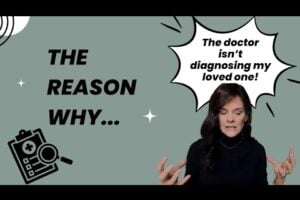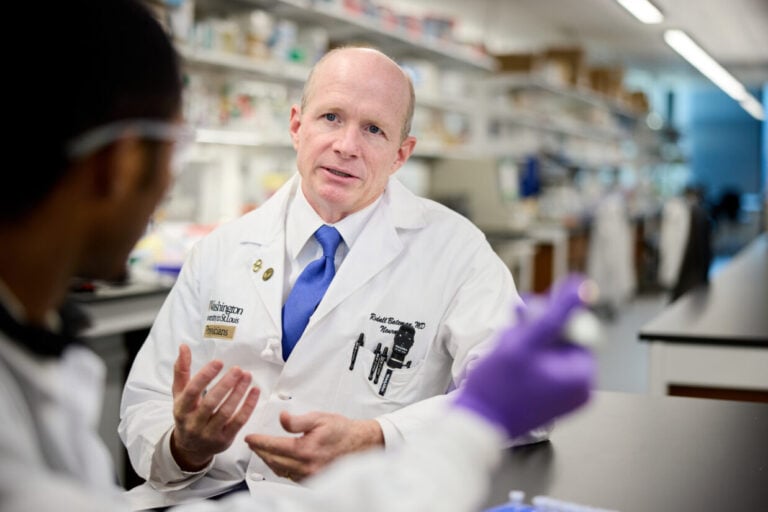VIDEO + ARTICLE:
Alzheimer’s is difficult to diagnose, but researchers now have a promising new screening tool, using the window to the brain: the eye.
A study of 3,877 randomly selected patients1 found a significant link between three degenerative eye diseases – age-related macular degeneration, diabetic retinopathy and glaucoma – and Alzheimer’s disease.
The results offer physicians a new way to detect those at higher risk of this disorder, which causes memory loss and other symptoms of cognitive decline.
The researchers, from the University of Washington School of Medicine, the Kaiser Permanente Washington Health Institute and the UW School of Nursing, reported their findings in Alzheimer’s & Dementia: The Journal of the Alzheimer’s Association.
Checking on Dementia
“We don’t mean people with these eye conditions will get Alzheimer’s disease,” said lead researcher Dr. Cecilia Lee, assistant professor of ophthalmology at the UW School of Medicine. “The main message from this study is that ophthalmologists should be more aware of the risks of developing dementia for people with these eye conditions, and primary care doctors seeing patients with these eye conditions might be more careful on checking on possible dementia or memory loss.”
The participants in the study were age 65 and older and did not have Alzheimer’s disease at the time of enrollment. They were part of the Adult Changes in Thought database started in 1994 by Dr. Eric Larson, who is at Kaiser Permanente Washington Health Research Institute.
Over the five-year study, 792 cases of Alzheimer’s disease were diagnosed by a committee of dementia experts. Patients with age-related macular degeneration, diabetic retinopathy, or glaucoma were at 40 % to 50% greater risk of developing Alzheimer’s disease compared to similar people without these eye conditions. Cataract diagnosis was not an Alzheimer’s disease risk factor.
Learn from the Brain by Looking at the Eye
“What we found was not subtle,” said Dr. Paul Crane, professor of medicine, Division of General Internal Medicine, at the UW School of Medicine. “This study solidifies that there are mechanistic things we can learn from the brain by looking at the eye.”
More than 46 million older adults are affected by dementia worldwide and 131.5 million cases are expected by 2050, the researchers said. Alzheimer’ disease is the most common dementia,and discovering risk factors may lead to early detection and preventive measures, they said in their paper.
Lee said anything happening in the eye may relate to what’s happening in the brain, an extension of the central nervous system. The possible connections need more study. She said a better understanding of neurodegeneration in the eye and the brain could bring more success in diagnosing Alzheimer’s early and developing better treatments.
New Area of Opportunity
The researchers said several factors suggest the effects they uncovered were specific to ophthalmic conditions and not merely age-related phenomenon.
Larson said for years Alzheimer’s researchers were focused on amyloid buildup in brain tissue, but that hasn’t brought much benefit to patients.
“This paper is pointing to a new area of opportunity,” he said.
- Funding for this research came from the National Institutes of Health, National Institute of Aging, National Eye Institute, an Unrestricted grant from Research to Prevent Blindness, and royalties from UpToDate.
REFERENCE:
- 1 Cecila S. Lee, et al., Associations between recent and established ophthalmic conditions and risk of Alzheimer’s disease, August 8, 2018, Alzheimer’s & Dementia: The Journal of the Alzheimer’s Association.
SOURCE:










